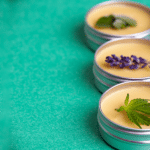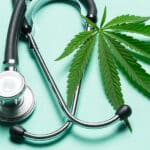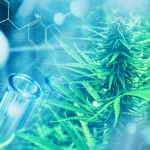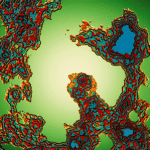I remember the first time I heard cannabis and ADHD [attention deficit hyperactivity disorder] mentioned in the same breath. I had just joined my local cannabis club in Southern Spain and was chatting with one of the guys hanging out there. Maybe it cropped up in conversation in response to my own professional interest in the medicinal uses of cannabis. Either way, it was clear for him at least that smoking cannabis was his chosen way of managing ADHD.
Seen through the lens of a psychiatrist or addiction specialist, my new friend may well have been diagnosed with cannabis use disorder (CUD), which is defined as the continued use of cannabis despite clinically significant impairment.
This is not wholly surprising when you consider how until now most research into cannabis and ADHD has sought to highlight the apparent harms caused by cannabis to young adolescents with ADHD.
What Is ADHD?
Attention deficit hyperactivity disorder is a neurological condition, typically beginning in childhood, that’s characterized by inattention and hyperactivity/impulsivity. ADHD is divided into three subtypes: primarily hyperactive-impulsive type, primarily inattentive type (formerly called ADD) and primarily combined type.
ADHD is thought to affect 11% of children in the United States and 5% of adults.2 While this suggests half of children ‘grow out’ of ADHD, that’s still a significant number of people who continue with ADHD in adulthood.
While young children with ADHD are twice as likely to meet the diagnostic criteria for CUD later in life,1 they also have a greater propensity than their non-ADHD peers to develop other forms of substance abuse, involving cocaine, nicotine, and/or alcohol.
However, cannabis in particular appears to be singled out as the most prolific source of abuse, and with that comes the questionable assumption that any cannabis use in ADHD constitutes misuse and should be discontinued.
Like everything in life when it comes to ADHD and cannabis, a middle ground exists, one in which cannabis is used therapeutically and in moderation to manage the intrusive thoughts, concentration difficulties, hyper awareness, and anxiety that often accompanies ADHD.
Can’t Sit Still
Caroline Barry, a 35-year-old Irish journalist, was diagnosed with ADHD when she was ten.
“I would have difficulty regulating my attention,” remembers Caroline, “so my schoolwork would often be inattentive, and all over the place. I would turn up at school without homework done, missing my pens and books in my bag. I had no sense of being able to sit still and wait my turn. I constantly blurted things out and was very hyperactive.”
For Caroline, life as a journalist, a profession where attention to detail is key, certainly has its challenges. “I make mistakes constantly, I mess up in really stupid ways,” she admits, “which is down to my inattentive ADHD. You know, it’s incredibly frustrating, but it’s part of it.”
In a similar way to Autism Spectrum Disorder, many adult ADHD patients describe feeling overwhelmed by pressurized thoughts and external stimulation.
“I swing between excessive amounts of energy,” explains Caroline, “where I feel like I’m literally vibrating from needing to move constantly, or the polar opposite when I can get so incredibly overwhelmed by our environments, and noise.”
In fact Autism Spectrum Disorder is one of many comorbidities associated with ADHD,3 alongside anxiety, Tourette’s Syndrome, sleep disorders, depression, and PTSD – all of which incidentally respond favorably to medicinal cannabis.
Dr. Niraj Singh, a UK based Consultant Psychiatrist who specialises in neurodevelopmental disability, regularly sees how disruptive ADHD can be to holding down a job and maintaining healthy personal relationships.
“In some cases,” says Singh, “it can actually spiral into criminality. And so often we do find that patients …. may go out to get amphetamines, or some drugs to self-medicate and that includes cannabis as well. It may lead to a very downward trajectory, and these are very able people who may have even lived a relatively stable life.”
Dopamine Deficiency
Once diagnosed, children with ADHD tend to be offered behavioural therapy, and depending on their age, pharmaceutical drugs such as Ritalin or Adderall, which are types of methylphenidate and amphetamine.
Prescribing amphetamines to children and adults with hyperactivity may sound counterintuitive, but there is method in this apparent stimulant-prescribing madness.
Studies show a correlation between the development of ADHD and deficient levels of the neurotransmitters norepinephrine4 and dopamine,5 which are thought to work in parallel to facilitate learning and normal cognitive processes.
Dopamine is associated with the body’s reward system and is activated when we experience something pleasurable, such as food, sex, shopping, a ‘like’ on social media or recreational drugs like cocaine. And it’s this impaired dopaminergic system so commonly found in ADHD patients that’s targeted by ADHD medication such as Ritalin.
“The dopamine system,” explains Dr. Singh, “is all about focus, concentration, reward, and that impacts what’s our called executive functioning, which is the ability to plan, task sequence, make judgments, and also has an impact on memory and our emotional regulation as well. These stimulants essentially trigger dopamine production in the cells of the frontal lobe of the brain, and people report some really good symptom reduction. So, they focus better, concentrate better and they feel less restless.”
Dopamine, THC & the Endocannabinoid System
Given what’s known about the modulating effect of the endocannabinoid system (ECS) on most classes of neurotransmitters, it’s no surprise researchers are investigating the possibility of a relationship between the ADHD-related suboptimal production of dopamine and a dysfunctional ECS.
Dopamine and the ECS are thought to have a bidirectional relationship: while dopamine has been shown to promote endocannabinoid release in the brain striatum, the endocannabinoid system dampens excessive dopamine neuron release by retrogradely releasing endocannabinoids that bind to CB1 receptors.6
A direct link between ADHD behaviours and ECS impairment has been discovered by researchers who found that CB1 signalling was significantly impaired in a mouse model of ADHD with a dopamine transporter (DAT) mutation.7 Based on these findings, the team went on to hypothesize that “interfering with the ECS might prove effective in this disorder.”
Which brings us to tetrahydrocannabinol (THC), the main psychoactive compound in cannabis, which just happens to be a CB1 agonist.
Dopamine release is thought to be partly responsible for the pleasurable sensations experienced from consuming THC-rich cannabis. As is often the case with cannabinoids, there’s a dose dependent effect whereby small amounts of THC appear to augment dopamine levels, whereas high doses reduce its synthesis.8
Differences are also noted between acute THC use which increases dopamine release and an overall blunting of the dopaminergic system caused by long term cannabis consumption. This may explain why many people with ADHD report that THC-rich cannabis, just like Adderall and Ritalin, helps them manage their ADHD symptoms. But equally, it points to how high doses of THC over a long period of time could be counterproductive and potentially spiral into cannabis use disorder.
Regaining the Ability to Focus
When Caroline began experimenting with cannabis as a university student, she found it brought about an improvement in concentration. “What I liked about it was that it gave me the ability to focus,” she remembers. “People with ADHD are hyper aware of everything around us like the noises, the smells, where things are, we notice the weirdest patterns in a room with people. Cannabis gave me the ability to have that silence and to feel a little bit more focused.”
These days Caroline uses cannabis when her periods of overwhelm become unmanageable: “That’s when that (cannabis) comes in useful to just quiet it down a little bit and to take away the kind of jittery sort of hyperactive energy, and I find that I’m really focused after that.”
Despite the testimonies of countless people who say cannabis helps rather than hinders their focus and other ADHD associated behaviors, mainstream medical science still seems fixated on the unproven notion that cannabis has a damaging effect on their condition.
In one ADHD study, researchers wanted to find out how cannabis use affected the participants’ abilities to successfully inhibit inappropriate responses in a standard go/no go test.9
They found that cannabis use made no difference to the amount of errors committed, which were instead attributed to impaired activation of the fronto-parietal/striatal network, an area of the brain involved in executive skills, working memory, inhibitory control, and focus, regardless of cannabis use.10
Interestingly, in the cannabis ADHD group, “greater recruitment” in the hippocampus and cerebellar vermis when successfully inhibiting inappropriate responses was noted. Why this occurs remains to be discovered, but the authors posited that activation of CB1 receptors in the hippocampus that modulate dopamine release may provide a clue, suggesting some sort of cannabinoid-induced compensatory neuroplasticity.
In a similar vein, scientists in another study were surprised to find that frequent cannabis use in young adults with ADHD did not worsen symptoms in a sample of 75 individuals aged 21–25 years with and without a childhood diagnosis of ADHD Combined Type.11
Clinical Evidence
Unfortunately, robust clinical evidence proving that cannabis effectively manages ADHD is largely missing. In fact, if you head to ClinicalTrials.gov, the database for all past, present, and currently recruiting clinical trials, only one is listed, a study of thirty ADHD patients who were administered Sativex (1:1 THC:CBD) with rather lacklustre results. The rest relate to finding pharmaceutical treatments for cannabis use disorder or dependency.12
Perhaps the most encouraging study comes from Germany, where the records of thirty adult patients with ADHD, who had been given approval to use cannabis flowers between 2012-14, were analysed.13 Most of the patients had previously tried standard treatments, such as Ritalin, with little success. However, with cannabis alone 73% found sufficient ADHD management to enable participation in working and social life and 47% noted improvement in concentration. It should be noted however, that these results were only presented as a poster at the 2015 International Cannabinoid in Medicine & Research Conference and have not been published in a peer reviewed journal.
The results from this relatively small cohort certainly appear to reflect the experiences of many ADHD patients and the clinicians brave enough to prescribe them cannabis.
Dr. Niraj Singh has seen extremely positive results in his patients since he began prescribing medical cannabis 18 months ago. Unfortunately, in the UK cannabis-based medicines are only available through the country’s National Health Service for multiple sclerosis and rare pediatric forms of epilepsy. As such, Dr Singh can only prescribe cannabis to patients with ADHD privately, and they must first have tried all other types of standard treatment without success.
Dr. Singh recalls a patient he saw recently who in the initial appointment appeared fidgety and restless, expressing difficulties in coping both at work and in his personal life. Just five weeks later Singh saw a different person: “He was smiling and talking about how everything has shifted in a real positive way. Work had improved, the boss had commented and commended him on how things were progressing at work. His wife was really pleased with the change and described that the person she knew had come back… It’s amazing how [medical cannabis] can make such a huge impact on one’s life.”
Getting to the Core
Dr. Singh has also been struck by how prescribing cannabis can have such a broadly beneficial effect compared with other pharmaceutical drugs that target specific neurotransmitters or systems.
“I think one of the great things is that with medical cannabis, it can be used to treat a whole host of problems and a whole spectrum of issues really, because it gets to the core… And what I love about that is you’re relying on one thing, rather than, here’s a treatment for ADHD, there’s a treatment for Tourette’s, it’s a catch all.”
Another unexpected positive outcome Dr. Singh has experienced is a reduced need to monitor patients’ overall physical health (long term use of amphetamines like Ritalin runs the risk of damaging the heart). “We don’t have to do blood pressure and pulse rate measurements on a daily basis. That side of things is very refreshing actually,” says Singh.
When it comes to the treatment of psychiatric disorders or neurodevelopmental disability, prescribing medical cannabis is always going to come up against resistance, and ADHD is no different. This is hardly surprising when we consider how until now research has largely focussed on linking long-term cannabis use with worsening ADHD symptoms rather than recording the outcomes experienced by ADHD patients using cannabis medicinally under the guidance of a prescriber.
A glimmer of hope lies in the imminent addition of ADHD to the list of conditions included in Project Twenty21, a patient registry gathering evidence for the effectiveness and tolerability of medical cannabis prescribed in the UK.
Perhaps as more real-world evidence emerges, the medical profession will stop discounting patient experience as the utterings of someone in the grips of cannabis dependency, and finally entertain the possibility that used appropriately, cannabis can safely help ADHD patients manage their exhausting, inner worlds.
Mary Biles, a UK-based journalist, educator, and Project CBD contributing writer, is the author of The CBD Book (Harper Collins, UK). © Copyright, Project CBD. May not be reprinted without permission.
Footnotes
- Steve S. Lee et al. Prospective association of childhood attention-deficit/hyperactivity disorder (ADHD) and substance use and abuse/dependence: a meta-analytic review. Clin Psychol Rev 2011 Apr;31(3):328-41.
- Centers for Disease Control and Prevention. Ed. Center for Disease Control. Centers for Disease Control and Prevention, 14 Feb. 2017. Web. 14 Mar. 2017.
- Comorbidities. ADHD Institute.
- Natalia del Campo et al. The roles of dopamine and noradrenaline in the pathophysiology and treatment of attention-deficit/hyperactivity disorder. Biol Psychiatry 2011 Jun 15;69(12):e145-57.
- Nora D. Volkow, MD et al. Evaluating Dopamine Reward Pathway in ADHD. JAMA. 2009;302(10):1084-1091.
- Giovanni Hernandez et al. To Act or Not to Act: Endocannabinoid/Dopamine Interactions in Decision-Making. Front. Behav. Neurosci., 17 December 2015
- Maura Castelli et al. Loss of striatal cannabinoid CB1 receptor function in attention-deficit / hyperactivity disorder mice with point-mutation of the dopamine transporter. Eur J Neurosci 2011 Nov;34(9):1369-77.
- Michael AP Bloomfield et al. The effects of Δ9-tetrahydrocannabinol on the dopamine system. Nature. 2016 Nov 17; 539(7629): 369–377.
- Jerod Rasmussen et al. ADHD and Cannabis Use in Young Adults Examined Using fMRI of a Go/NoGo Task. Brain Imaging Behav. 2016 Sep; 10(3): 761–771.
- Marc F Schneider et al. Impairment of fronto-striatal and parietal cerebral networks correlates with attention deficit hyperactivity disorder (ADHD) psychopathology in adults – a functional magnetic resonance imaging (fMRI) study. Psychiatry Res 2010 Jul 30;183(1):75-84.
- Clare Kelly et al. Distinct effects of childhood ADHD and cannabis use on brain functional architecture in young adults. NeuroImage: Clinical Volume 13, 2017, Pages 188-200.
- Ruth E Cooper et al. Cannabinoids in attention-deficit/hyperactivity disorder: A randomised-controlled trial. Eur Neuropsychopharmacol 2017 Aug;27(8):795-808.
- Franjo Grotenhermen et al. Successful authorised therapy of treatment resistant adult ADHD with Cannabis: experience from a medical practice with 30 patients. Presented at International Cannabinoid in Medicine & Research Conference 2015 in Sestri Levante (GE), Italy.
Recommended Readings
ADHD: Pediatric Anxiety
Why do some young people who try cannabis become daily users?
Toxic FDA-Approved Food Additives
The Food and Drug Administration bans CBD edibles while routinely promoting dietary poisons.
Caffeine, ADHD & the CB1 Receptor
Caffeine may block other effects of cannabinoids.










